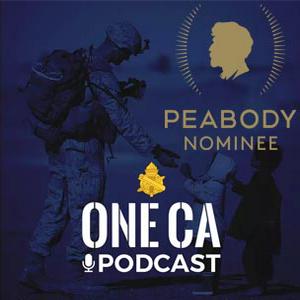Today we welcome Patrick Alley, co-founder of Global Witness.
Patrick Alley and his team at Global Witness are credited with countering multiple autocrats and kleptocrats worldwide.
The most notable is collapsing the Khmer Rouge by exposing the illegal timber trade that was bankrolling the rebels.
They created the Blood Diamond campaign to counter the De Beers diamond cartel and multiple rebel groups in Africa that used the conflict to fund some of the most brutal civil wars in the late 1990s.
Their findings were also critical for getting the UN Security Council to impose sanctions on Charles Taylor in Liberia and trials for crimes against humanity.
Patrick and Global Witness conducted similar operations in Europe and the Americas before he retired and published his first book, Very Bad People in 2022, and now his second book, Terrible Humans, which is available online and will be in bookstores around mid-August.
This is a two part episode. Next week we bring in Mariah Yager from SMA to cohost the discussion on DOD Integrated Influence. So, stay tuned.
LInks:
Today we welcome Patrick Alley, co-founder of Global Witness.
Patrick Alley and his team at Global Witness are credited with countering multiple autocrats and kleptocrats worldwide.
The most notable is collapsing the Khmer Rouge by exposing the illegal timber trade that was bankrolling the rebels.
They created the Blood Diamond campaign to counter the De Beers diamond cartel and multiple rebel groups in Africa that used the conflict to fund some of the most brutal civil wars in the late 1990s.
Their findings were also critical for getting the UN Security Council to impose sanctions on Charles Taylor in Liberia and trials for crimes against humanity.
Patrick and Global Witness conducted similar operations in Europe and the Americas before he retired and published his first book, Very Bad People in 2022, and now his second book, Terrible Humans, which is available online and will be in bookstores around mid-August.
This is part two of a two part episode with Mariah Yager from SMA to cohost the discussion on DOD Integrated Influence.
Patrick Alley:
Global Witness: https://www.globalwitness.org/
Book, Terrible Humans: https://www.hachette.co.uk/titles/patrick-alley/terrible-humans/9781800962385/
Book, Very Bad People: https://www.globalwitness.org/en/blog/very-bad-people-inside-story-fight-against-corruption/
Ted Talk: https://youtu.be/lUIrYBtkfl4
SMA version of the interview: https://nsiteam.com/smaspeakerseries_31july2024/
---
One CA is a product of the civil affairs association
and brings in people who are current or former military, diplomats, development officers, and field agents to discuss their experiences on the ground with a partner nation's people and leadership.
We aim to inspire anyone interested in working in the "last three feet" of U.S. foreign relations.
To contact the show, email us at
[email protected] or look us up on the Civil Affairs Association website at www civilaffairsassoc.org
---
Special thanks to the Juanes Channel for the intro sample of Desde Que Despierto Hasta Que Duermo. Retrieved from: https://www.youtube.com/watch?v=nZCeqUVeRMU
---


